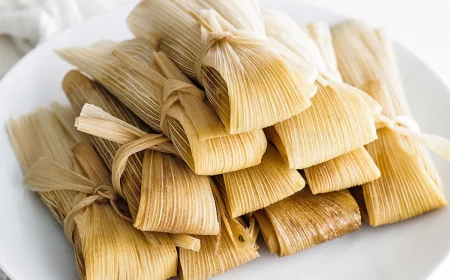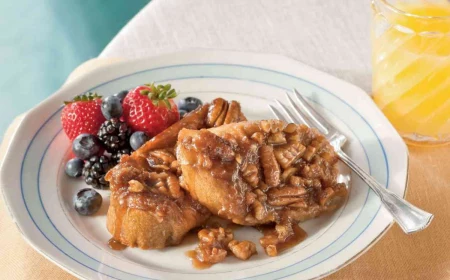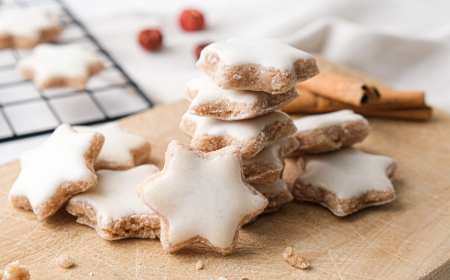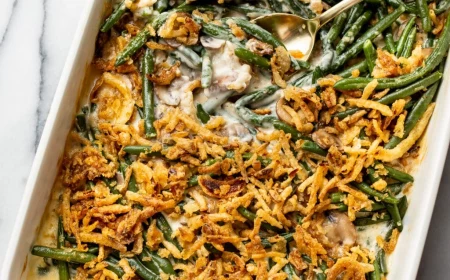Stop Stressing About Brunch: A Pro’s Guide to Hosting Like a Pro
I’ve spent a long time in professional kitchens and catering, and if there’s one thing I’ve learned, it’s that a fantastic brunch isn’t about a hundred different dishes. Honestly, it’s about balance, timing, and a few core techniques. I want to help you create that feeling of relaxed abundance, where the food is incredible and you, the host, aren’t secretly having a meltdown in the kitchen.
In this article
So many people get overwhelmed by brunch. They imagine a chaotic scene of flipping pancakes while trying not to burn the bacon. But in a pro kitchen, we lean on a system. It’s all about prepping ahead, knowing what to cook last, and how to hold food perfectly. I once tried to throw a massive brunch for friends to show off… and ended up with cold eggs and warm orange juice. It wasn’t my finest moment, but I learned a valuable lesson: a smart plan beats a huge menu every time.

This isn’t just a list of recipes. It’s the mindset and the methods that turn a stressful meal into something special. We’ll cover menu planning, master a few killer dishes, and talk about food safety, which is the most important ingredient of all.
First Things First: Your Brunch Battle Plan
Before you even think about recipes, you need a plan. A restaurant menu isn’t random; it’s a careful balance of flavors and textures. Your brunch should be the same. I break it down into four key parts:
- The Savory Anchor: This is the heart of the meal, usually built around eggs, maybe with bacon or sausage. It’s the substantial dish that grounds everything.
- The Sweet Counterpoint: This is what makes it feel like a party! Think pancakes, French toast, or a great coffee cake. It provides that delicious contrast to the savory stuff.
- The Fresh Element: Don’t skip this! A bowl of fresh fruit, a simple green salad, or sliced avocado adds freshness and acidity. It cuts through the richness and keeps the meal from feeling too heavy.
- The Beverages: Good coffee is a must. A selection of teas and a juice or two rounds out the experience. It’s the first and last thing your guests taste, so make it count.
The real secret weapon here is what we call mise en place, or “everything in its place.” It means doing as much as you can before the big day.

Your Go-To Timeline for a Stress-Free Morning
Feeling overwhelmed? Here’s a sample timeline that pros use. Steal it!
- Two Days Before: If you’re making a brunch cake, bake it now. Most cakes are actually better after a day or two. You can also shop for all your non-perishable ingredients.
- The Day Before: This is your power-prep day. Make the sauce for the shakshuka. Chop all your veggies for the egg muffins. Assemble the Crème Brûlée French Toast and get it soaking in the fridge. Wash your salad greens. Set the table. Get as much done as you possibly can.
- The Morning Of: Now you’re just assembling and heating. Pop the French toast in the oven. Reheat the shakshuka sauce and cook the eggs. Pour the batter for the egg muffins and bake. Brew the coffee. All the hard work is already done!
Mastering the Savory Core: Beyond Basic Scrambled Eggs
Eggs are the soul of brunch, but they’re delicate. The difference between creamy, perfect eggs and a rubbery mess is just a few seconds. It’s all about gentle heat and control.

Technique: Shakshuka for a Crowd
Shakshuka is a showstopper. It looks incredible, serves a bunch of people from one pan, and the sauce is a total make-ahead dream. This recipe will comfortably serve 4-6 people, especially with good bread for dipping.
The Sauce is Everything
A truly great shakshuka gets its deep flavor from a well-developed tomato base. Don’t rush this part.
- Ingredients: 2 tbsp olive oil, 1 large onion, 6-8 garlic cloves, 1 jalapeño (optional), 1 tbsp tomato paste, 1 tsp smoked paprika, 1 tsp ground cumin, two 28-ounce cans of whole peeled tomatoes, salt, pepper, 6-8 large eggs, fresh parsley or cilantro, and maybe some crumbled feta cheese.
Pro Method:
- Heat olive oil in a big skillet or Dutch oven over medium heat. Add the chopped onion and a pinch of salt. Cook it slowly for a good 8-10 minutes until it’s soft and sweet, but not brown.
- Add sliced garlic and jalapeño and cook for another minute. Then, stir in the tomato paste. This is a key step. Cook that paste for 2-3 minutes, stirring, until it darkens. This cooks out the raw taste and builds a ton of flavor.
- Stir in your spices for about 30 seconds. Add the canned tomatoes, crushing them with your spoon. Bring it to a simmer, then lower the heat and let it gently bubble, partially covered, for at least 45 minutes. An hour is even better. The sauce will thicken and the flavor will get incredibly rich. Season it with salt and pepper.
(Pro Tip: You can cool this sauce and stick it in the fridge for up to 3 days. This is my go-to catering trick.)

To Finish: When you’re ready to serve, just reheat the sauce, make little wells with a spoon, and crack an egg into each one. (Crack them into a small bowl first to avoid shell fragments!) Cover and cook for 5-8 minutes until the whites are set but the yolks are still runny. Top with a ton of fresh herbs and some feta. Serve it right in the pan with crusty bread.
Quick tip: You don’t need to splurge on fancy San Marzano tomatoes, which can cost $4-$5 a can. A good quality can of whole peeled tomatoes from your grocery store brand for around $2 will still make a delicious sauce.
Technique: Prep-Ahead Egg Muffins
These are a host’s best friend because you can make a big batch at once. The trick to keeping them from getting spongy is the right ratio of fillings and not overbaking them. This recipe makes 12 muffins, perfect for about 6-8 people.

- Ingredients: 12 large eggs, 1/2 cup milk or cream, salt, pepper, and about 2 cups of finely chopped, pre-cooked fillings (like cooked bacon, sautéed spinach, peppers, onions, and cheese).
Pro Method:
- Preheat your oven to 350°F (175°C) and grease a 12-cup muffin tin really well. By the way, a silicone muffin pan, which you can find for about $15 online, is fantastic for this—they pop right out.
- Make sure your fillings are pre-cooked and that you’ve squeezed any excess water out of veggies like spinach. This prevents soggy muffins.
- Divide fillings among the cups, about 1/4 full. Whisk the eggs, milk, and seasonings until smooth, then pour over the fillings, leaving a little room at the top.
- Bake for 20-22 minutes. They’re done when the centers are set and don’t jiggle. Pull them out just before you think they’re done; they’ll continue to cook for a minute or two from the residual heat.

Shakshuka or Egg Muffins: Which is Right for You?
So, how do you choose? Think about your hosting style. The shakshuka has a massive “wow factor” when you bring that bubbling pan to the table. It feels rustic and communal. The downside is that it requires about 10 minutes of hands-on cooking right before you serve. The egg muffins, on the other hand, are the undisputed champion of “make-ahead friendly.” You can bake them, hold them in a warm oven, and they require zero last-minute attention. They’re less dramatic, but way more practical if you want to be completely hands-off when your guests arrive.
The Sweet Counterpoint: Because It’s a Celebration
Sweet dishes balance all that savory richness. Here, it’s all about texture.
Technique: Crème Brûlée French Toast Casserole
This sounds super fancy, but it’s secretly the easiest way to make French toast for a crowd. The overnight soak is the entire point—it’s non-negotiable! This recipe easily serves 6-8 and lives in a 9×13-inch pan.

- For the base: 1/2 cup butter, 1 cup brown sugar, 2 tbsp corn syrup (this stops the sugar from getting grainy).
- For the rest: 6-8 thick slices of day-old bread, 5 large eggs, 1 1/2 cups half-and-half, 1 tsp vanilla, 1/4 tsp salt.
Pro Method:
- The day before, melt the butter, brown sugar, and corn syrup in a saucepan. Pour it into the bottom of your baking dish.
- Arrange the bread slices on top. Day-old bread is essential because it’s drier and soaks up more custard. Thick-cut challah or brioche are the gold standard here, and a loaf will run you about $6-$8. But honestly, a good Texas toast or even a stale baguette sliced thick on an angle works great, too.
- Whisk the eggs, half-and-half, vanilla, and salt. Pour it all over the bread. Cover and refrigerate overnight.
- The next morning, preheat your oven to 350°F (175°C). Bake uncovered for 35-45 minutes until it’s puffed and golden. Let it rest for a few minutes before serving. You can scoop it out or be brave and invert the whole thing onto a platter (careful, that caramel is hot!).

The Fresh Element: Your Secret Weapon
Never, ever underestimate something fresh. It makes the whole meal feel thoughtful and balanced.
Technique: Avocado Toast That’s Actually Good
Avocado toast is everywhere, but so much of it is bland. The secret is all about seasoning and texture contrast.
- The Avocado: Use a ripe one. Mash it with a fork, leaving some chunks for texture. Don’t turn it into a sad, smooth puree.
- The Seasoning: For every one avocado, use a generous pinch of flaky sea salt (like Maldon, which adds a nice crunch) and the juice of at least half a lime. This is not optional. It wakes up the flavor and keeps it from browning.
- The Bread: Use good, sturdy bread and toast it until it’s properly crispy. The crunch against the creamy avocado is everything.
Heads Up: Common Avocado Toast Mistakes
- Mistake
1: Under-seasoning.
Avocado is basically fat, and fat needs salt and acid to taste like anything. Don’t be shy! - Mistake
2: Using flimsy bread.
Your classic sandwich bread will just turn to mush. You need something with backbone that can handle the topping.

Logistics and Safety: The Non-Negotiable Stuff
Let’s get serious for a minute. As a professional, food safety is the absolute foundation of everything. A beautiful brunch that makes people sick is a total failure.
The Temperature Danger Zone: This is the most important concept. Bacteria go wild between 40°F and 140°F (4°C and 60°C). Hot food must stay hot (above 140°F) and cold food cold (below 40°F). Don’t leave food sitting out in this zone for more than two hours.
A Quick Tip for Keeping Things Warm: Don’t have professional chafing dishes? No problem. Your oven is your best friend. Set it to its lowest temperature, usually around 170-200°F, and you can hold dishes like the egg muffins or the French toast casserole for a good 30-45 minutes without them drying out.
Allergy Awareness: It’s just smart hosting to assume someone has an allergy. Ask your guests beforehand. Or, make little labels for your dishes: “Contains Nuts,” “Dairy-Free,” etc. It’s a small touch that shows you care.

And finally, know your limits. A brunch for 8 is manageable. A brunch for 25 is a whole different beast. There’s no shame in scaling back the menu or even asking guests to bring a dish. The goal is to enjoy yourself and the company. When you start thinking like a pro—plan, prep, and execute—you’ll be able to do just that.
Inspiration Gallery









The Golden Hour of Prep: The secret to a relaxed brunch isn’t cooking faster; it’s cooking smarter. The hour before guests arrive should be for final touches only—assembling, warming, and garnishing. Everything else, from chopping vegetables to making batters, should be done the day before. Your future self will thank you.








- Set the table the night before.
- Prepare a self-serve drink station.
- Choose one oven-baked dish, like a frittata or a casserole.
- Let go of perfection; embrace abundance.
The goal? To enjoy the party as much as your guests.








The National Coffee Association reports that 66% of Americans drink coffee each day, more than any other beverage.
This means your coffee game needs to be strong. Brew a large pot just before guests arrive and transfer it to a quality thermal carafe, like one from Zojirushi or Technivorm Moccamaster, to keep it piping hot for hours without that burnt, stewed taste from a heated plate.








How do you keep everything warm without a catering setup?
Lean on your appliances. A slow cooker set to ‘Warm’ is perfect for holding dishes like pulled pork, scrambled eggs, or even oatmeal. You can also set your oven to its lowest temperature (usually around 170-200°F or 75-95°C) and use it as a holding cabinet for casseroles or bacon stacked on a wire rack.








The Mimosa Bar: Let guests play bartender. Set out a few bottles of chilled prosecco or cava in an ice bucket.
The Juices: Offer more than just classic OJ. Think grapefruit, cranberry, or peach nectar for variety.
This simple setup not only frees you up but also becomes a natural, interactive focal point for the party.









Don’t underestimate the power of height on a buffet table. It creates visual interest and makes a spread look more generous. Use cake stands (like the one shown with the carrot cake) for pastries, or simply overturn a sturdy bowl and place a platter on top to elevate a dish of sausages or a fruit salad.








A single sprig of fresh rosemary on a plate of scrambled eggs, or a dusting of smoked paprika over a deviled egg, transforms the dish from simple to intentional.








The article mentions a sweet counterpoint, like the gorgeous apple pie in the photos. Don’t feel pressured to offer multiple sweet options. One single, spectacular homemade item—whether it’s a coffee cake, a batch of scones, or a beautiful tart—makes a much bigger impact than a scattered assortment of store-bought pastries.








- They absorb more flavor.
- The morning-of cooking time is cut in half.
- The texture becomes incredibly custardy and rich.
The secret? Soaking your French toast overnight. Prepare your egg mixture, submerge the bread in a baking dish like a Le Creuset stoneware piece, cover, and refrigerate. In the morning, just pan-fry or bake.








The host’s mood is contagious. If you’re stressed, running around, and apologizing, your guests will feel on edge. But if you’re relaxed, glass in hand, and enjoying the conversation, they will too. A well-executed plan is really a gift to yourself, allowing you to be present.








A Nod to the Nordic Smörgåsbord: For a different kind of brunch, take inspiration from Scandinavia. Arrange platters of high-quality smoked salmon, dense rye bread, hard-boiled eggs, sliced cucumbers, dill, and capers. It’s incredibly elegant, requires almost no active cooking, and feels both light and satisfying.









Store-Bought Puff Pastry: Many professional kitchens use it. Brands like Dufour are made with all butter and deliver fantastic results for quick tarts or turnovers.
High-Quality Jam: A beautiful jam, like a Bonne Maman preserve, can elevate simple toast or scones instantly.
Focus your energy on the main event and let these pro-approved shortcuts handle the rest.








- A base of thick-cut, toasted sourdough.
- A big bowl of perfectly smashed avocado (just add lime, salt, and chili flakes).
- Toppings: crumbled feta, chili oil, everything bagel seasoning, fresh cilantro, and quartered cherry tomatoes.
This








Important point: Balance your textures. If your main savory dish is soft, like a quiche, ensure you have something with a crunch, like crispy bacon or toasted nuts on a salad. If you’re serving fluffy pancakes, a side of crisp, fresh fruit provides a necessary contrast. It’s a subtle detail that makes the entire meal more dynamic and enjoyable to eat.








Music is a key ingredient for atmosphere. Create a playlist in advance. For brunch, think upbeat but not jarring. Artists like Leon Bridges, Lake Street Dive, or even some classic Motown hits create a warm, happy vibe that fills any lulls in conversation without being intrusive.








What about guests who aren’t drinking alcohol?
Offer something more exciting than plain juice. Brew a pitcher of a floral iced tea, like hibiscus, or create a simple mocktail by mixing sparkling water with a splash of cranberry juice and a squeeze of fresh lime. Garnishing it with the same care as a cocktail makes it feel just as special.








Go beyond the basic. A brunch board is a fantastic centerpiece. Arrange mini pancakes, bacon, sliced frittata, small bunches of grapes, berries, and little bowls of syrup and whipped cream on a large wooden board. It’s a feast for the eyes and invites guests to graze and mingle.









- Forgetting to warm the plates for hot food. A hot dish on a cold plate becomes a lukewarm dish in seconds.
- Running out of ice for drinks. You can never have too much.
- Trying a complex new recipe for the first time. Stick to what you know and have perfected.








Frittata in Cast Iron: A well-seasoned cast-iron skillet (like a Lodge) gives a fantastic crust and goes directly from stovetop to oven to table for a rustic look.
Frittata in Non-Stick: A quality non-stick pan (like one from Scanpan) offers peace of mind. The frittata will slide out effortlessly for perfect presentation on a platter.
Both are great options; choose based on your confidence and desired serving style.








To reduce cleanup and stress, embrace the








Don’t let leftovers go to waste. Leftover fruit salad can be blended into a smoothie the next day. Extra frittata makes a great lunch, and stale croissants or bread can be transformed into a bread pudding for a future dessert. Think of it as a pre-prepped meal for your future self.








A word on bacon: Don’t fry it in a pan. It’s messy and requires constant attention. The pro method is to lay the strips on a wire rack set inside a foil-lined baking sheet. Bake at 400°F (200°C) for 15-20 minutes until perfectly crisp. It cooks evenly, the fat drains away, and you’re free to do other things.







The final sensory touch? A simple vase of seasonal flowers or even just a few branches of eucalyptus on the table. It adds life, a touch of color, and signals to your guests that this is a special occasion, no matter how simple the menu.










